
When birds start a family close to your home, it offers a thrilling chance to observe their behavior. But if they choose to place the abode in a high-traffic area, it can be challenging too. Here are some pointers on how to be a good host.
Enjoy the Front-Row Seat
Most birds are secretive nesters. So when a pair chooses a visible spot, such as under the caves of a porch, it provides a rare opportunity to watch their family life up close. If the nest is visible from a window, you have a perfect situation: Most birds quickly adapt to being watched through the glass, especially if you avoid sudden movements near the window.
Writing notes on the things you observe each day makes the process more interesting and educational. Can you tell when the adults have started incubating or when the eggs have hatched? Can you see what kind of food they're bringing to the youngsters? Generally it's best not to approach the nest too closely. But if you can't resist peeking in to check the contents-no more than once every few days-it's OK. Do it when the parents are away, toward the middle of the day, not early in the morning when it's cooler and the birds may be feeding more actively. And steer clear of the nest when the young are nearly full-grown, or they may jump out before they're totally ready.
This story is from the {{IssueName}} edition of {{MagazineName}}.
Start your 7-day Magzter GOLD free trial to access thousands of curated premium stories, and 9,000+ magazines and newspapers.
Already a subscriber ? Sign In
This story is from the {{IssueName}} edition of {{MagazineName}}.
Start your 7-day Magzter GOLD free trial to access thousands of curated premium stories, and 9,000+ magazines and newspapers.
Already a subscriber? Sign In
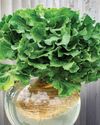
Basics of Hydroponics
Use these top tips and plant picks to have a successful soil-free garden
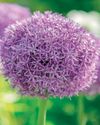
Rooted in Resilience
These hardy perennials will thrive in most zones
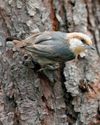
Social and Supportive
Brown-headed nuthatches take a helpful approach to raising their young

All About Owl Pellets
And why you should give a hoot about them
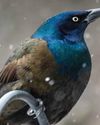
Ask the Experts
Advice from our pros about houseplants, bird feeding and more
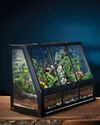
BRING THE OUTDOORS IN
Making a terrarium is about as close as you can get to a Zen DIY project. Once you have gathered the proper materials and squared away your plant selections, it's as simple as layering it all together and watching your mini ecosystem thrive. Here, I'll walk you through my foolproof process and cover all the required elements for good filtration, healthy soil, strong root growth and resistance against fungus and disease.

GROW THIS. NOT THAT
Six easy-to-grow houseplants—and six that may not be the right choice for you

Winter MAGIC
Forecasts may be frigid, but grab your binoculars because birding opportunities are still incredible
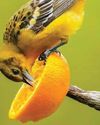
Sense or Nonsense? - Why some birds can taste and smell - but others can't
Does a porcelain berry taste like a blueberry to a gray catbird? Does a block of lard smell like frying bacon to a northern flicker? The short answer is no. While some avian species do have a well-adapted sense of taste or smell, they can't distinguish between flavors and odors the way humans can. They're not picking up every ingredient in the suet you put out, says José Ramírez-Garofalo, an ornithology researcher at Rutgers University in New Jersey and the director of Freshkills Biological Station in Staten Island, New York.

Maple Mania - Amazing facts about this fall foliage mainstay
Amazing facts about this fall foliage mainstay